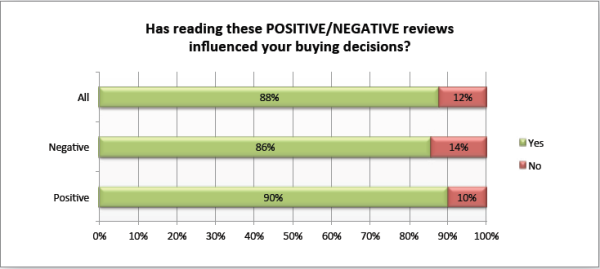The Good Way to Deal With a Bad Service Review
- January 17, 2024
- By: Vonigo
One maid cleaning service took a novel approach to bad service reviews on Yelp: blackmailing their customers. The company would demand clients take down their negative reviews.
 When those customers didn’t comply, the cleaning service company would get revenge with negative reviews of the clients’ businesses. Then they would charge their credit cards without authorization, effectively double-billing the victims.
When those customers didn’t comply, the cleaning service company would get revenge with negative reviews of the clients’ businesses. Then they would charge their credit cards without authorization, effectively double-billing the victims.
It didn’t work out too well. The cleaning service company owner ended up facing possible jail time and fines — not to mention, a possible class action lawsuit.
It’s a cautionary tale for any field service company because the fact is, your company is going to get a bad review one day. You’ve probably already received one, if not several.
It is not necessarily a reflection of the quality of your business. You’re doing your best. Maybe you’ve implemented mobile field service software to make the most of your workers and processes. No matter how good your service or how professional your employees act. If you’ve been in business long enough, it’s going to happen.
Maybe it was the result of an honest mistake. Maybe it’s not even about you: your customer just got served divorce papers or their teenage kid just got into a fender bender and they’re just going to take out their hostility on someone — unlucky you.

With up to 90 percent of customers reading online reviews before trying a business, just ignoring bad online reviews isn’t really a fix.
Here’s how to deal with a bad review on Yelp, Angie’s List or any number of other social review sites:
Take Ownership of the Bad Review
When a bad review comes in, you’ve immediately got two objectives: first, trying to turn a bad experience into a good one, so you keep the customer – a very tall order. The bigger objective is showing other customers how you do everything you can to keep them happy. Your reaction to a problem can help showcase that a problem is a one-off and that ultimately, your company is accountable. Remember, reviewers can usually edit and update reviews, which can mitigate or even reverse a bad review.
Acknowledge a customer’s bad experience, don’t try to place blame on anyone else. Take the hit, explain what you’re going to do about it, and document the issue for future reference. If your technicians are using mobile field service software, empower them to document issues in the field as they happen, which will ensure your back office team is up to speed in real-time.
Respond Immediately, or Don’t. That Depends On Your Personality
Are you the kind of owner who reflexively knows that the customer is always right, even when they’re wrong? Or are you quick to righteous anger when a customer unfairly singles out your company for unwarranted abuse in a review?
Know yourself and that will dictate how and when you get in touch with the customer.
Bell Bros. Plumbing, Heating, and Air, located in California, has a policy of addressing negative reviews on the same business day they’re posted, according to their Director of Marketing Lauren Edvalson. “It’s not always possible to find the client’s information in our database, but we do our best to resolve the concern through public comments so that others can see we truly care about resolving the concern.”
If you start seething at an unfair review, you might want to take the approach advised by Wade L. from Square Cow Movers in a video on Yelp’s advice page for business owners on dealing with reviews: “Our response to a negative review is stop, drop and roll. Stop first. Don’t respond immediately. Wait 24 hours. If you respond immediately, you’re going to respond with emotion. Second is drop. Drop that defensive attitude that so many business owners want to have when they’re dealing with a challenging client. Lastly, roll with it. You can’t control the thoughts and opinions of every client.”
Use the Bad Review to Improve Your Business
A bad review is also a golden opportunity to prove that change is needed. Some otherwise great employees won’t change bad habits or inefficient processes unless they see real urgency. It’s not that they’re bad people or you’ve hired badly, necessarily: but ‘best practices’ can seem awfully abstract and theoretical until a bad review appears in an employee’s HR file.
As well, some bad reviews will certainly be legitimate. A company either fixes the problem or their competitor will pick up the slack.
Finally, a bad review isn’t necessarily bad for business. If all reviews are good, most customers just won’t believe the reviews are real — which defeats the purpose of instilling confidence in your brand. Just a sprinkling of such reviews can actually help customers trust you more.



